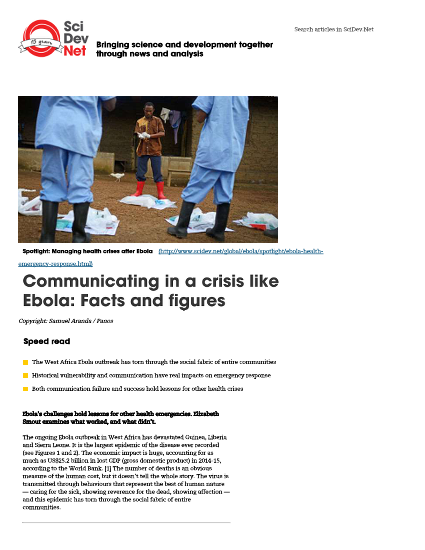
Ebola’s challenges hold lessons for other health emergencies. Elizabeth Smout examines what worked, and what didn’t.
The ongoing Ebola outbreak in West Africa has devastated Guinea, Liberia and Sierra Leone. It is the largest epidemic of the disease ever recorded (see Figures 1 and 2). The economic impact is huge, accounting for as much as US$25.2 billion in lost GDP (gross domestic product) in 2014-15, according to the World Bank. [1] The number of deaths is an obvious measure of the human cost, but it doesn’t tell the whole story. The virus is transmitted through behaviours that represent the best of human nature — caring for the sick, showing reverence for the dead, showing affection — and this epidemic has torn through the social fabric of entire communities.
Links
Resource collections
- COVID-19 Response Collection
- Learning from crises
- UN Habitat - Urban Response Collection
- Urban Response - Urban Crisis Preparedness and Risk Reduction
- Urban Response Collection - Community Engagement and Social Cohesion
- Urban Response Collection - Economic Recovery
- Urban Response Collection - Environment and Climate Change
- Urban Response Collection - Housing, Land and Property
- Urban Response Collection - Urban Crisis Response, Recovery and Reconstruction
- Urban Response Collection - Urban Resilience